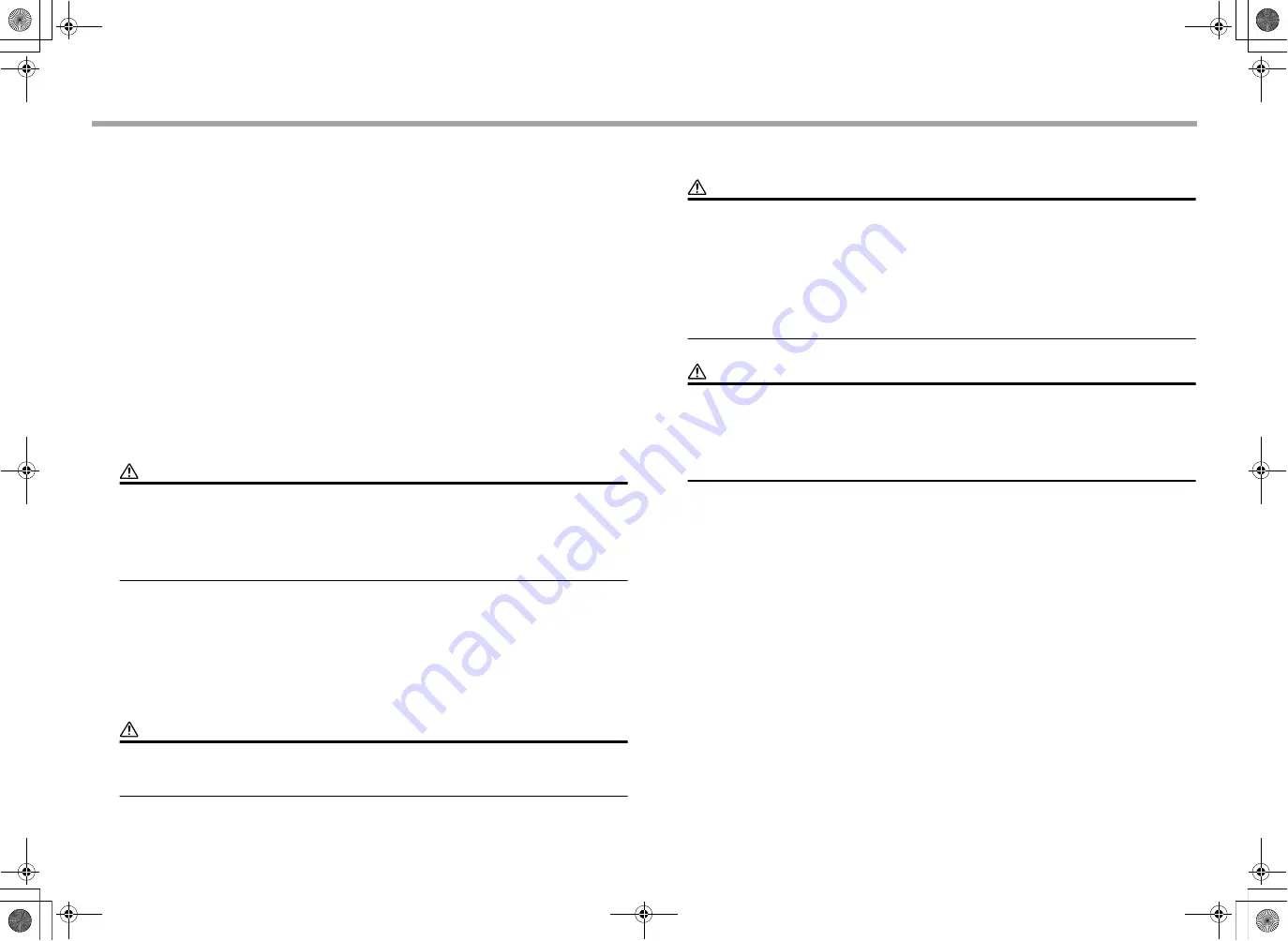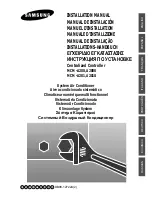
– 9 –
Installation Manual
EN-17
EN-18
4
Installation Conditions
Before installation
Be sure to prepare to the following items before installation.
Airtight test
1
Before starting an airtight test, further tighten the spindle valves on the gas and liquid sides.
2
Pressurize the pipe with nitrogen gas charged from the service port to the design pressure to conduct an
airtight test.
3
After the airtight test is completed, evacuate the nitrogen gas.
Air purge
• To purge air, use a vacuum pump.
• Do not use refrigerant charged in the outdoor unit to purge air. (The air purge refrigerant is not contained in the
outdoor unit.)
Electrical wiring
Be sure to fix the power wires, indoor / outdoor connecting wires and remote controller wires with clamps so that they
do not come into contact with the cabinet, etc.
Earthing
WARNING
Make sure that proper earthing is provided.
Improper earthing may cause an electric shock. For details on how
to check earthing, contact the dealer who installed the air conditioner
or a professional installation company.
• Proper earthing can prevent charging of electricity on the outdoor unit surface due to the presence of a high
frequency in the frequency converter (inverter) of the outdoor unit, as well as prevent electric shock. If the outdoor
unit is not properly earthed, you may be exposed to an electric shock.
• Be sure to connect the earth wire (grounding work).
Incomplete earthing can cause an electric shock.
Do not connect earth wires to gas pipes, water pipes, lightning rods or earth wires for telephone wires.
Test run
Turn on the leakage breaker at least 12 hours before starting a test run to protect the compressor.
CAUTION
Incorrect installation work may result in a malfunction or complaints
from customers.
Installation location
WARNING
Install the outdoor unit properly in a location that is durable
enough to support the weight of the outdoor unit.
Insufficient durability may cause the outdoor unit to fall, which may
result in injury.
This outdoor unit has a weight of about 147 kg. Pay special attention
when installing the unit onto a wall surface.
CAUTION
Do not install the outdoor unit in a location that is subject to
combustible gas leaks.
Accumulation of combustible gas around the outdoor unit may cause
a fire.
Install the outdoor unit in a location that meets the following conditions after the customer’s consent is
obtained.
• A well-ventilated location free from obstacles near the air intake and air discharge
• A location that is not exposed to rain or direct sunlight
• A location that does not increase the operating noise or vibration of the outdoor unit
• A location that does not produce any drainage problems from discharged water
Do not install the outdoor unit in the following locations.
• A location with a saline atmosphere (coastal area) or one that is full of sulfide gas (hot-spring area) (Special
maintenance is required.)
• A location subject to oil, vapor, oily smoke, or corrosive gases
• A location in which organic solvent is used
• Places where iron or other metal dust is present. If iron or other metal dust adheres to or collects on the interior of
the air conditioner, it may spontaneously combust and start a fire.
• A location where high-frequency equipment (including inverter equipment, private power generator, medical
equipment, and communication equipment) is used
(Installation in such a location may cause malfunction of the air conditioner, abnormal control or problems due to
noise from such equipment.)
• A location in which the discharged air of the outdoor unit blows against the window of a neighboring house
• A location where the operating noise of the outdoor unit is transmitted
• When the outdoor unit is installed in an elevated position, be sure to secure its fixing leg.
• A location in which drain water poses any problems.
When collectively draining discharged water completely, use a drain pan.
2FAN_IM_DB04307201-04_EN.book Page 9 Tuesday, December 17, 2019 6:34 PM











































